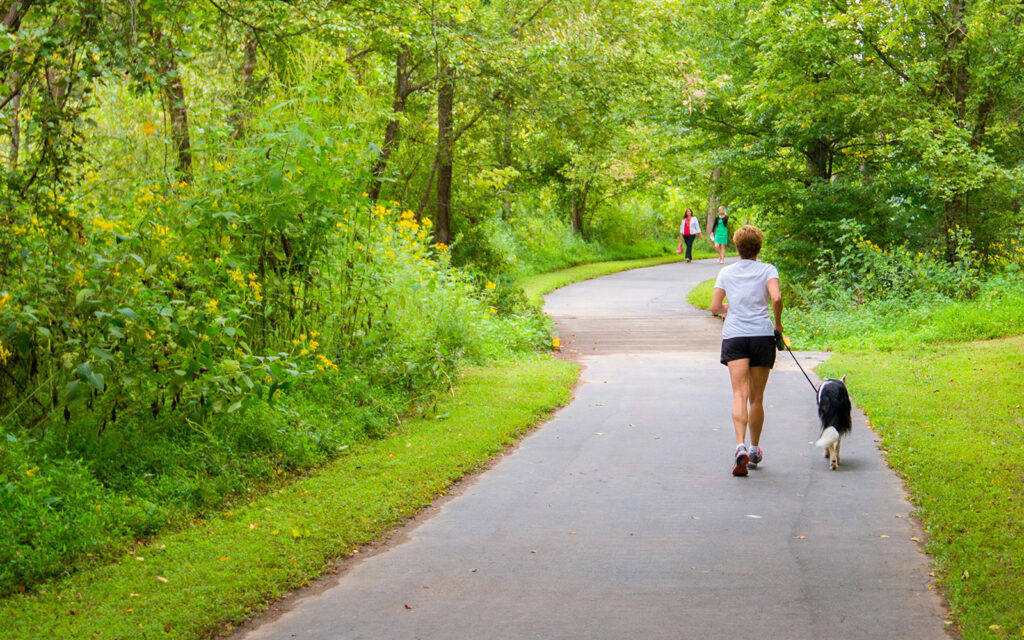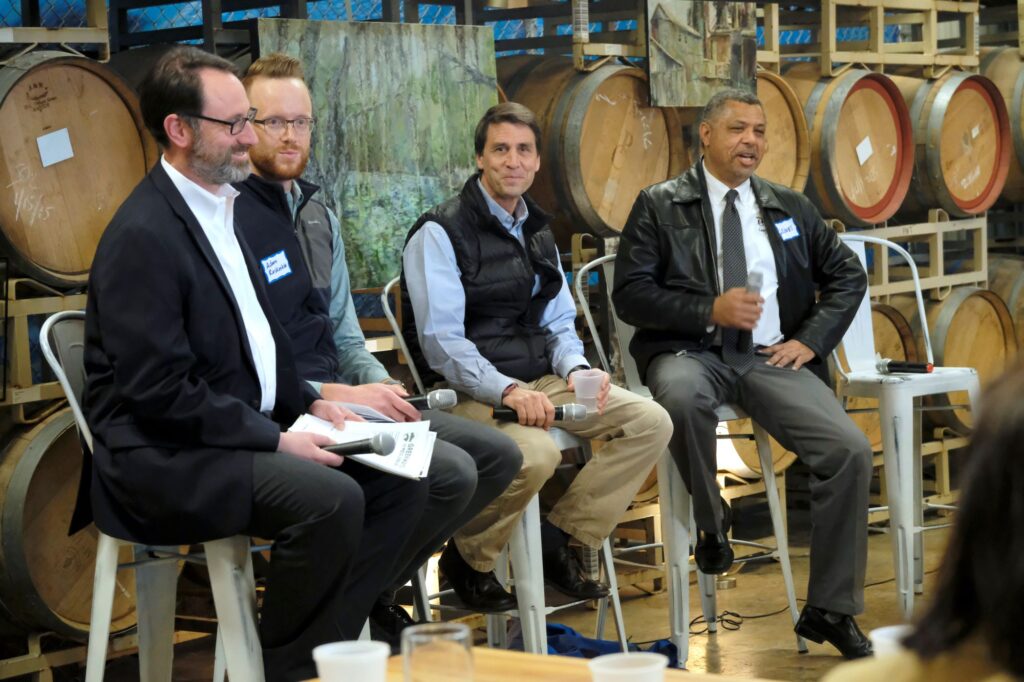Greenways are vital to our growing community
Over 100 people came out to Resident Culture Brewing for our second Grow Smart CLT event, proving that green space is a priority for Charlotteans. Our panel discussion centered around how green space is impacted by, and plays an important role in a growing city like Charlotte. Panelists were:
- Michael Dunning (Shook Kelley)
- Lee Jones (Mecklenburg Co. Park and Rec)
- Reed Perkins (Queens University)
- Adam Raskoskie (Partners for Parks)
- Rick Winiker (Greenways for Mecklenburg)

Photo credit: Greenways for Mecklenburg
The discussion centered around the rapid loss of Charlotte’s green space, what is happening now to address the loss, and what needs to be done to keep Charlotte a great place to live.
Jones shared what his department has been doing to protect open space and balance it with development, but also the challenges that his department faces with funding, and how that impacts how much progress they’re able to make on their plans for more green space. He said that county government is doing the best it can with the resources available, but the citizens should share with their county commissioners that parks are important.
Dunning’s firm focuses on designing projects that incorporate a mix of uses and use more density to save land. He pointed out that just 10 years ago, many developers wouldn’t have considered including any type of public space in their project, but now consumers demand more. Developers are much more likely to go above the standard and include green space as part of their design because that’s what potential buyers want and expect.
Winiker spoke about how the current vision for greenways is unfulfilled and we need to be doing more to ensure that greenways are a priority for our city moving forward. While the county master plan calls for 129 miles of greenways by 2018, we currently have just over 47 miles of greenways in Mecklenburg County. He says we need to make a conscious effort to fund and complete this vision, and one way to make this happen is through community collaboration.
On a similar note, Raskoskie stressed how important it is for nonprofits like his to be connectors, and to give the public the tools they need to go out and make a difference on this issue. This could mean seeking out nontraditional partners to help achieve the goals we want to see happen.
Perkins made the point that green spaces are opportunities to educate people about nature through hands-on experiences. He cited an example of his work with local elementary and high school students to study the Little Sugar Creek watershed, which was only possible because of access to the creek via the greenway. Whether it’s formal or informal education, greenways provide a powerful resource for our community.

But education is also important for adults, and several of our panelists made the point that it’s important for the public to be sharing with government that green space is vital to our community and it should be a priority. Lee Jones stated, “The most important thing you can do is to be informed and get involved.”
If you want to make a difference on this issue here in Charlotte, you can take action! Email your Mecklenburg County Board of County Commissioners (email addresses below) and ask them to allocate adequate funding this year to accelerate the completion of the 200 mile connected greenway network.
| Trevor.Fuller@MecklenburgCountyNC.gov |
| dumont.clarke@mecklenburgcountync.gov |
| Pat.Cotham@MecklenburgCountyNC.gov |
| Vilma.Leake@MecklenburgCountyNC.gov |
| George.Dunlap@MecklenburgCountyNC.gov |
| Matthew.Ridenhour@MecklenburgCountyNC.gov |
| wjames@carolina.rr.com |
| jim.puckett@mecklenburgcountync.gov |
| ella.scarborough@mecklenburgcountync.gov |
| dena.diorio@mecklenburgcountync.gov |
| shannon.binns@sustaincharlotte.org |
| meg.fencil@sustaincharlotte.org |
We’re excited to continue the conversation at our April 11th event, where the topic will be Transportation!
Check out the video of the event here, and view the photos. Photos by Nancy Pierce.
Thanks for reading!
As a nonprofit, community support is essential for us to keep doing what we do — including providing free articles like this. If you found this article helpful, please consider supporting Sustain Charlotte.
Want to stay in the loop? Subscribe to our weekly newsletter and follow us on Instagram, Facebook, and Twitter.
